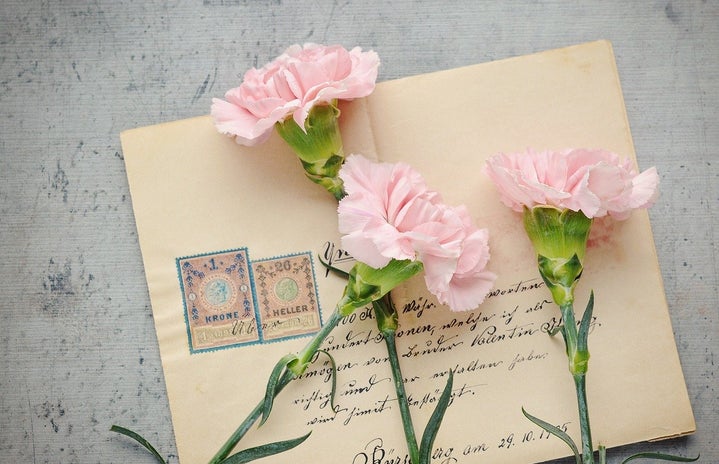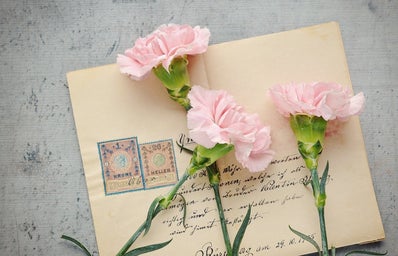I remember when I got my first email address. It was 2013, I was about to graduate from elementary school and it was the most exciting thing to happen to me. My friends and I did not have our own phones or any social media, so this was our new, innovative form of communication. We sent emails in 18p, Comic Sans, while constantly-changing font colours and overusing Microsoft emojis. Some emails were just one sentence and others were novella, but in either case, I remember how much time and passion I put into writing them. Over summer vacation, it was our only way to keep in touch. I even insisted on using a public computer on a ferry to Newfoundland to send emails to all my friends because although I was cruising along the Atlantic Ocean, I had to update them about every little detail.
This era of emails didn’t last very long (we soon got phones and, eventually, social media), and since then my inbox only sees unwanted newsletters and occasional clothing sale notifications. That was, of course, until university.
In university, email is your lifeline. You have to know how to write one properly. You have to check it every day. It is how professors contact you, and it’s how you contact them when your paper is three days late and you are left wondering if it’s too late to get an extension – until you remember, it is. However, in my first year of university, I found myself constantly stressed by my email address. The possibility of bad news and the anxiety of communicating with my professors made it nearly impossible for me to even open it. While this situation may not be universal, I think emailing feels tedious for many university students. It’s just another task to remember to do.
However, this isn’t the only thing that feels tedious today. As the generation that grew up alongside social media (as Lorde would say, “maybe the internet raised us”), I think many of us are starting to question our relationship with the social internet. Personally, as much as Instagram, Twitter and TikTok help me stay in contact with people I love, part of me loathes them. I think everyone does at least a little bit. In the past three years, through the pandemic, when isolation was prevalent, social media was a crutch for so many people, maybe even their only source of human interaction. But it also pervades our everyday lives in a way that, I think, gets tiring very quickly.
We seek meaningful connection, but social media very rarely provides that.
One of my solutions to this during the pandemic was to write physical letters. I stained pieces of paper with tea and researched letter-folding techniques from the Regency era. I wrote letters to my friends like the emails I used to write, including every mundane detail of my life. I even found myself wanting to write things that I’d never told them: deep, personal thoughts about my life and their place in it, how much I loved them and everything that reminded me of them. Things I would never say in person.
I was writing 19th-century love letters and was convinced this was the only way I would communicate with people from now on. It felt so freeing.
However, the issue with writing these letters (like all of my intense but short-lived hobbies) is that I couldn’t commit myself to it. Going to the post office to send them was always last on my list of responsibilities. Many of those letters still sit, unsent, in the depths of my desk drawers. It’s especially hard for those of us in our early 20s, already balancing university and jobs and so many other things, to dedicate so much time to a form of communication that is so terrestrial (as opposed to digital), which is why social media works for us.
This is, I think, the space that emails can fill. Or rather, refill.
It’s not innovative to propose using email for social contact (what it was invented for), but for most people my age it’s not what comes to mind. Emailing friends to talk seems like a silly idea when you think about it. I realize this is such a gen z perspective, but I crave the easy intimacy that email can bring. It’s not as immediate as texting or social media. You can really put effort into what you’re saying and there’s no pressure to be concise and witty or to even respond quickly. It’s not instant messaging, it’s like… 5-10 business days messaging.
Earlier this year, I read Sally Rooney’s latest book, Beautiful World, Where Are You and that is what cemented this idea into my mind. The book is about two friends, Eileen and Alice, who are nearing 30 and, although they were best friends in college, are off living their own lives. They don’t visit each other in person, they don’t even talk on the phone, they only keep in touch through email. It makes their relationship seem bizarre and distant (which it is) but also intimate in a very unique way. The emails are interspersed between third-person chapters about Eileen and Alice’s lives. Every second chapter is an email (from Eileen to Alice, or from Alice to Eileen) that reflects on recent events and which always somehow dissolves into philosophical or political musings before ending with inquiries about the other’s life. These chapters are the heart and soul of Beautiful World, Where Are You, a book that is so much about the connection between people. It’s the doorway into their inner lives.
As I read the book, I couldn’t help but think “I want to communicate with someone like that.” I want to sit down and unload everything from my mind and send that to someone, saying “this is for you to read whenever you feel like hearing from me,” and wait for the same in return. Maybe it’s just that I communicate best through writing. I feel as though I can express myself properly when I write and it gives me enough courage to share my intimate thoughts, instead of freezing up and fearing sincerity. Drafting an email and editing it until it’s just right allows me to be both vulnerable, and accurate. It has everything I want out of communication and I am making a point to bring it back.
That said, from now on, if you want to stay in touch you know how to reach me.


